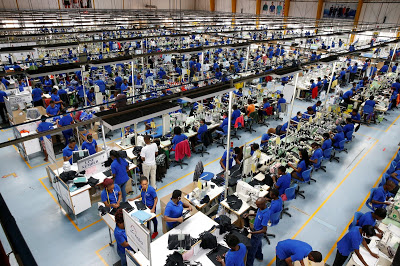The International Labour Organization (ILO) and Nigeria Labour Congress (NLC) have collaborated to build the capacity of workers to participate in the United Nations reforms as it relates to the decent work agenda.
Both organisations organised a three-day capacity building workshop for NLC educators on the United Nations Sustainable Development Cooperation Framework (UN-SDCF) and the Decent Work Agenda (DWA).
At the opening ceremony on Wednesday in Lagos, the Director, ILO Country Office, Ms Vanessa Phala, said that the workshop was crucial and planned as part of the ILO’s ongoing efforts in exploring innovate approaches.
Phala was represented by Ms Chinyere Emeka-Anuna, Senior Programme Officer, ILO Country Office, Abuja.
“These approaches are for supporting, guiding trade unions, and encouraging them to take a more proactive and assertive role in processes shaping development policies at national, regional, and global levels.
“To this end, allow me to commend the ILO (ACTRAV) for launching in April 2021, a publication entitled; United Nations Sustainable Development Cooperation and the Decent Work Agenda: A trade union reference manual”.
“The reference manual for trade unions emphasises their political and developmental role in the UN sustainable development.
“I am pleased to note that this workshop has been conceptualised around the themes and modules in the reference manual designed to explain and simplify UN country level development processes.
“This include common country analyses leading up to the consolidation and adoption of the cooperation frameworks and the expected role of trade unions.
“Also, how unions can promote the ILO normative agenda, international labour standards, decent work priorities as well as the national development strategies in line with the global sustainable development agenda 2030 (SDGs), “Phala said.
Also, a UN Resident/Humanitarian Coordinator, Mr Matthias Schmale, said that the UN-SDCF outlines how the UN System will leverage its comparative advantages and broad resources.
According to him, the resources are to support government to address its development and humanitarian challenges over the next five years.
Schmale was represented by Ms Inviolata Chinyangarara, ILO Senior Specialist in Workers’ Activities, Country Office, Abuja.
He said: “It has been written with the close collaboration and vital inputs of government at all levels, along with a wide array of others from across society including the NLC.
“We are now close to finalising this essential framework; the document will be our North Star as it outlines the how, what, where, when and why of the UN’s activities across the country.
“It outlines how we will drive change and accomplish the 2030 Agenda with its accompanying SDGs.”
In his remarks, NLC’s General Secretary, Mr Emmanuel Ugboaja, said that the workshop was unique, because trade unions had never been engaged with regard to UN operations in the country.
“There is formal effort to get the workers through the trade unions to be involved and get acquainted with the works of the UN in the country.
“So, this is the initial take-off to build the capacity of trade unions to understand the workings of the UN, particularly with regard to the development goals.
“Also, on how it relates to decent work programme which is also a product of the UN work across the globe, “ Ugboaja said.




